To the Waters and the Wild

Dr. Sandra Sprayberry, Robert E. Luckie Professor of English, spent her recent trip to Ireland with what she knows and loves: the land, the people, and the poetry.
Sprayberry attended Intercha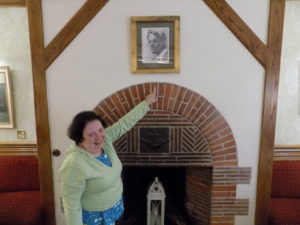 nges: Transatlantic Conference on Education, Research, and Community Engagement, a convention co-sponsored by Aquinas College, Lourdes University, and Irish community development organization Connemara West. The conference was held June 12-14 on the Renvyle Peninsula in Connemara, Co. Galway, Ireland. Sprayberry presented her paper titled “‘From the Republic of Conscience’: Incorporating Irish Studies in an American Human Rights Program.”
nges: Transatlantic Conference on Education, Research, and Community Engagement, a convention co-sponsored by Aquinas College, Lourdes University, and Irish community development organization Connemara West. The conference was held June 12-14 on the Renvyle Peninsula in Connemara, Co. Galway, Ireland. Sprayberry presented her paper titled “‘From the Republic of Conscience’: Incorporating Irish Studies in an American Human Rights Program.”
In her paper, Sprayberry highlights BSC’s Human Rights program and its introductory course, developed in 2006 through a grant from the Christian A. Johnson Endeavor Foundation. She also spoke on the important role Irish history and literature play in the study of human rights struggles within an American context. Sprayberry has taken BSC students to both Ireland and South Africa to connect with global issues, and she will take students to Ireland again during the 2021 E-term.
“When I first went to Ireland, I was told it would not be my last,” she says. “It’s such an ancient place, and frankly, I’ve never had a student not fall in love with it and its people. I love seeing them realize that they have to go back.”
During her trip, Sprayberry also participated in a birthday celebration for Irish writer W. B. Yeats on June 13 in Letterfrack. The event featured multiple Irish and American poets and was broadcast on Connemara Community Radio. Sprayberry performed a dramatic reading of “The Stolen Child” with her husband. She also spoke about her research on the poem and its connection to the Birmingham Civil Rights Movement — a connection that remains widely unheard of.
Her interest in this topic specifically goes back to the 2013 unveiling of “The Four Spirits,” the public steel and bronze memorial at the entrance of Kelly Ingram Park that depicts the four girls killed in the 16th Street Baptist Church bombing in 1963. One girl, likely depicting Cynthia Wesley, looks down at an open book.
“I could not believe it when I saw she was reading part of a Yeats poem.” Sprayberry says. “I knew I would need to somehow approach the poem differently given this connection.”
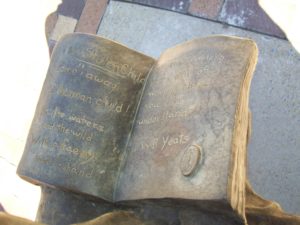 Engraved on the sculpted page is the chorus of “The Stolen Child.” As a seasoned Yeats scholar, Sprayberry recognized it instantly. She began to interpret the connection of the Irish verse to an American tragedy, and she brought the sources into her classes. She pairs this material with “Four Spirits,” a novel by BSC alumna Sena Jeter Naslund ’64 and the inspiration for the memorial’s name.
Engraved on the sculpted page is the chorus of “The Stolen Child.” As a seasoned Yeats scholar, Sprayberry recognized it instantly. She began to interpret the connection of the Irish verse to an American tragedy, and she brought the sources into her classes. She pairs this material with “Four Spirits,” a novel by BSC alumna Sena Jeter Naslund ’64 and the inspiration for the memorial’s name.
“I was already teaching in the area of human rights, so I immediately incorporated these connections into some of the classes I teach. I wanted to see what students thought about it too,” Sprayberry says. “I’m always looking for ways to contextualize literature, to give students a broader sense of what a particular piece means.”
Sprayberry hopes to publish her research on the sculpture and the Yeats chorus in the near future. Since she’ll be the first to make these connections, she is waiting for her thoughts to be in print before revealing too much. She has, however, been able to share some of her findings with the BSC community.
“Yeats wrote ‘The Stolen Child’ at the end of the 19th century and died decades before the church bombing. But he held a spiraling rather than a linear view of history. He believed that new artistic works could transform previous artistic works,” Sprayberry says.
Yeats called this theory “transference,” and this idea allows for the poem and the events of the Civil Rights Movement to be woven together. In her courses, Sprayberry can connect these findings with the topics she teaches — poetry, literature, and human rights. And Irish texts will serve as a lens for her students to understand these topics thoroughly.
“They love poetry in Ireland,” she says. “That’s one of the reasons I love the country.”



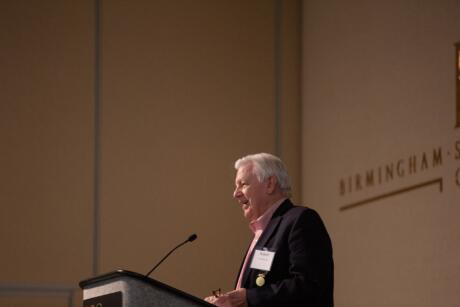

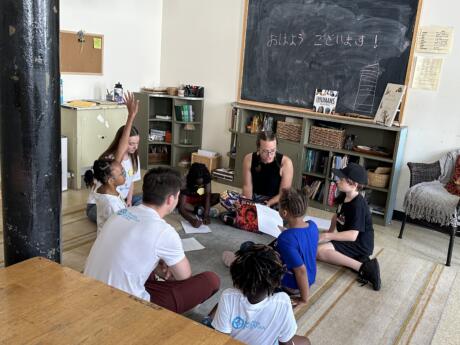

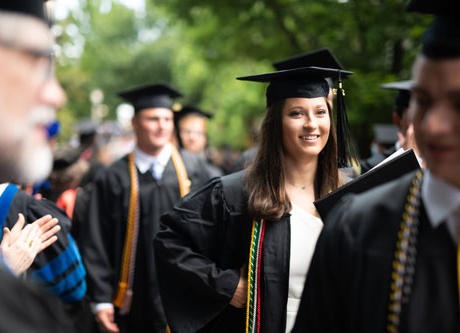



// Comments are closed //